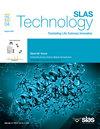乳腺癌重建中的大型语言模型:患者特异性恢复和预测性见解的框架
IF 3.7
4区 医学
Q3 BIOCHEMICAL RESEARCH METHODS
引用次数: 0
摘要
乳腺癌重建是癌症综合治疗的重要组成部分,可与肿瘤切除同时进行,提高患者的生理和心理恢复。然而,恢复的复杂性和多样性需要一个专门的策略。因此,使用自然语言处理(NLP)和大型语言模型(llm)的独特框架被开发出来,以提高乳腺癌重建期间患者特异性恢复和预测见解。词干化/词干化用于预处理来自医疗记录、临床记录和治疗史的大量数据,而BioBERT是一种对生物医学文本进行预训练的模型,用于捕获用于特征提取的复杂医学术语,并有助于将文本数据转换为数字向量。该方法采用ChatGPT-4和Gemini等预测模型,根据特定的患者特征、治疗方案和恢复时间表,提供对成功重建的可能性和相关问题的见解。使用复杂的法学硕士,该框架为临床医生提供了强大的工具,通过预测术后并发症,恢复时间和心理社会后果来个性化护理。此外,它还允许开发有针对性的康复计划,以适应患者的独特需求,从而实现更大的恢复和整体生活质量。这种方法不仅改善了临床决策,而且通过提供个性化的康复策略赋予患者权力。结果,ChatGPT-4的准确率为98.4%,Gemini为98.7%;ChatGPT-4和Gemini的得分分别为2.52和2.89。ChatGPT-4的可读性为93.0%,Gemini为94.5%;ChatGPT-4和Gemini的相关性评分分别为95.5%和94.0%,ChatGPT-4和Gemini的时间反应分别为2.5 s和2.5 s。最后,本研究表明,NLP和llm如何通过提供预测性见解和促进量身定制的、以患者为中心的治疗,弥合强大的计算技术和生命科学研究之间的差距,从而改善患者护理,从而改变乳腺癌重建。本文章由计算机程序翻译,如有差异,请以英文原文为准。
Large language models in breast cancer reconstruction: A framework for patient-specific recovery and predictive insights
Breast cancer reconstruction, a vital part of comprehensive cancer therapy, can be performed concurrently with cancer resection, improving both physical and psychological recovery for patients. However, the intricacy and variety of recovery demand a specialized strategy. Thus, a unique framework that uses Natural Language Processing (NLP) and Large Language Models (LLMs) is developed to improve patient-specific recovery and predictive insights during breast cancer reconstruction. Lemmatization/Stemming is used for pre-processing large volumes of data from medical records, clinical notes, and treatment histories and BioBERT, a model pretrained on biomedical texts to capture complex medical terminology used for feature extraction and aids in the transformation of text data into numerical vectors. The approach employs forecasting models like ChatGPT-4 and Gemini to offer insights into the likelihood of successful reconstruction and associated problems based on specific patient characteristics, treatment options, and recovery timelines. Using sophisticated LLMs, this framework provides clinicians with a powerful tool for personalizing care by anticipating postoperative complications, recovery durations, and psychosocial consequences. Furthermore, it allows for the development of targeted rehabilitation programs that are adapted to unique patient needs, enabling greater recovery and overall quality of life. This approach not only improves clinical decision-making but also empowers patients by offering personalized recovery strategies. As a result, the accuracy of ChatGPT-4 is 98.4 % and Gemini is 98.7 %; the score per response is 2.52 for ChatGPT-4 and 2.89 for Gemini. Readability of ChatGPT-4 is 93.0 % and Gemini is 94.5 %; a relevance score is 95.5 % and 94.0 % for ChatGPT-4 and Gemini, and time response is 2.5 s for ChatGPT-4 and 2.5 s for Gemini. Finally, this research indicates how NLP and LLMs can transform breast cancer reconstruction by offering predictive insights and promoting tailored, patient-centered therapy, bridging the gap between powerful computational technologies and life science research to better patient care.
求助全文
通过发布文献求助,成功后即可免费获取论文全文。
去求助
来源期刊

SLAS Technology
Computer Science-Computer Science Applications
CiteScore
6.30
自引率
7.40%
发文量
47
审稿时长
106 days
期刊介绍:
SLAS Technology emphasizes scientific and technical advances that enable and improve life sciences research and development; drug-delivery; diagnostics; biomedical and molecular imaging; and personalized and precision medicine. This includes high-throughput and other laboratory automation technologies; micro/nanotechnologies; analytical, separation and quantitative techniques; synthetic chemistry and biology; informatics (data analysis, statistics, bio, genomic and chemoinformatics); and more.
 求助内容:
求助内容: 应助结果提醒方式:
应助结果提醒方式:


